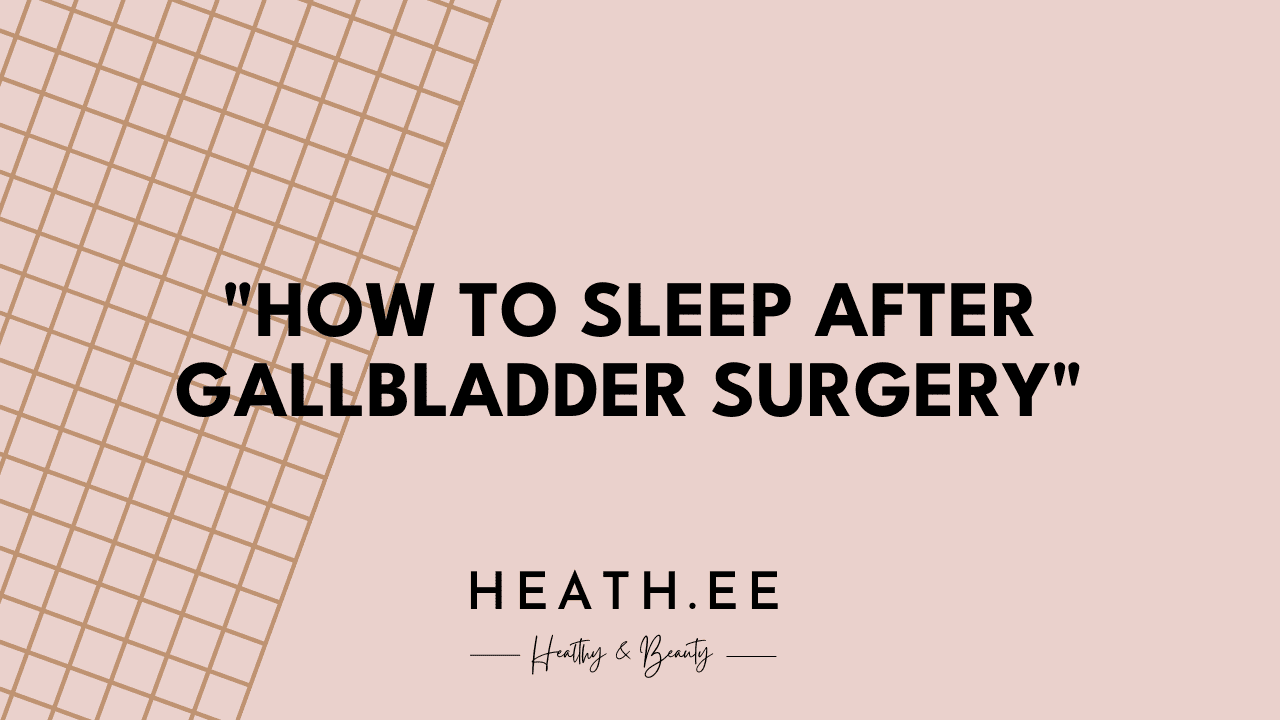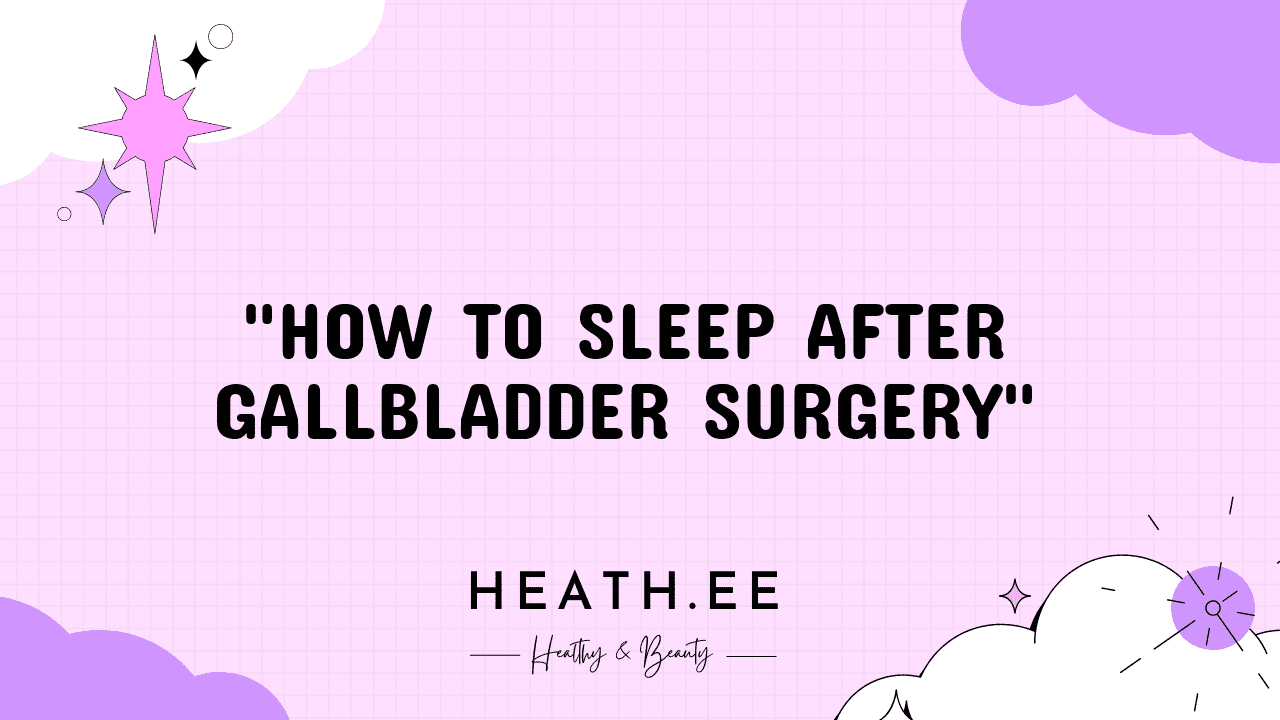Introduction
Gallbladder surgery is a major medical procedure that can have a significant impact on your health. It is not uncommon to experience difficulty sleeping after gallbladder surgery. This is due to the discomfort and pain associated with the procedure. In addition, certain medications and lifestyle changes may contribute to insomnia. Fortunately, there are a number of strategies that can help you get a good night’s sleep after gallbladder surgery.

Understand Your Sleep Needs
The first step in getting better sleep after gallbladder surgery is to understand your individual sleep needs. Everyone is different, and the amount of sleep you need will depend on your age, lifestyle, and overall health. Generally speaking, adults should aim for seven to nine hours of sleep per night. However, if you are recovering from gallbladder surgery, you may need more rest. Additionally, it is important to recognize the signs of sleep deprivation, such as difficulty concentrating, irritability, and fatigue.
Follow Your Doctor’s Advice
It is essential to follow your doctor’s advice when it comes to getting a good night’s sleep after gallbladder surgery. Your doctor may recommend medications to help with pain and discomfort, as well as lifestyle changes to promote better sleep. For example, your doctor may suggest avoiding caffeine and alcohol before bedtime, as these can interfere with sleep. Additionally, your doctor may recommend avoiding strenuous exercise or activities that can cause discomfort.

Establish a Bedtime Routine
Establishing a bedtime routine can be an effective way to get better sleep after gallbladder surgery. This means setting a specific time to go to bed each night and sticking to it. Additionally, it is important to create a calming environment in your bedroom. This can include dimming the lights, using a noise machine, and avoiding screens before bed.
Exercise During the Day
Exercising during the day can be beneficial for those recovering from gallbladder surgery. Exercise can help reduce stress and anxiety, both of which can interfere with sleep. Additionally, exercise can help reduce pain and discomfort, which can make it easier to fall asleep. However, it is important to avoid strenuous exercise too close to bedtime, as this can interfere with sleep.
Avoid Stimulants Before Bed
Stimulants, such as caffeine and nicotine, can interfere with sleep. It is best to avoid these substances in the hours before bedtime. Additionally, alcohol can interfere with sleep, so it is important to avoid drinking alcohol close to bedtime.
Use Relaxation Techniques
Relaxation techniques can help reduce stress and anxiety, both of which can interfere with sleep. Examples of relaxation techniques include deep breathing, progressive muscle relaxation, and guided imagery. Additionally, mindfulness meditation can be helpful for reducing stress and calming the mind.
Address Pain and Discomfort
Pain and discomfort can interfere with sleep. Thus, it is important to address any pain or discomfort you may be experiencing. Over-the-counter medications, such as ibuprofen or acetaminophen, can help reduce pain and discomfort. Additionally, your doctor may recommend other medications to help with pain.
Consider Natural Sleep Aids
Natural sleep aids, such as valerian root, melatonin, and chamomile, can be helpful for those having difficulty sleeping after gallbladder surgery. However, it is important to speak to your doctor before taking any supplements, as some may interact with medications. Additionally, some natural sleep aids may not be safe for those with certain medical conditions.
Seek Professional Help if Necessary
If you are still having difficulty sleeping after gallbladder surgery, it may be beneficial to seek professional help. Your doctor can provide advice and treatment options to help you get a better night’s sleep. Additionally, a sleep specialist can provide more in-depth advice and treatment, such as cognitive-behavioral therapy for insomnia.
Conclusion
Getting a good night’s sleep after gallbladder surgery can be challenging. However, there are a number of strategies that can help. It is important to understand your individual sleep needs and follow your doctor’s advice. Additionally, establishing a bedtime routine, avoiding stimulants, and using relaxation techniques can be beneficial. If necessary, seek professional help to address any underlying issues that may be interfering with sleep. With the right strategies, you can get the restful sleep you need to recover from gallbladder surgery.



